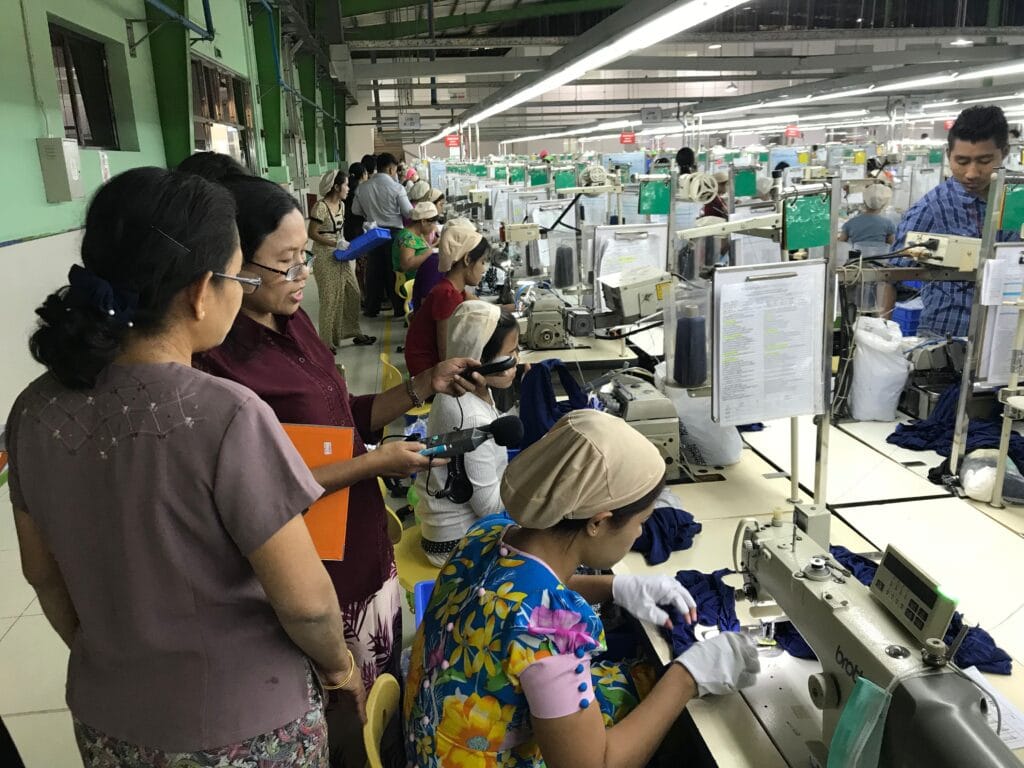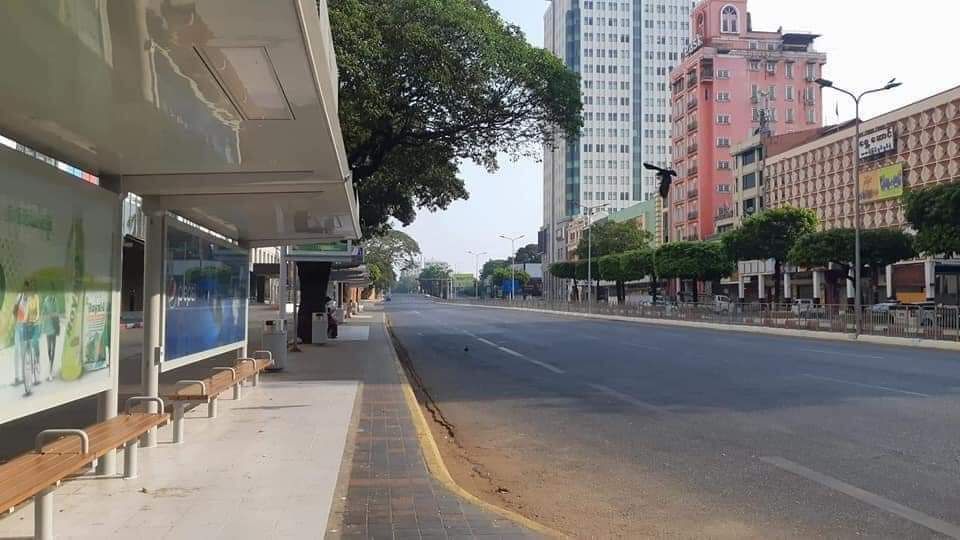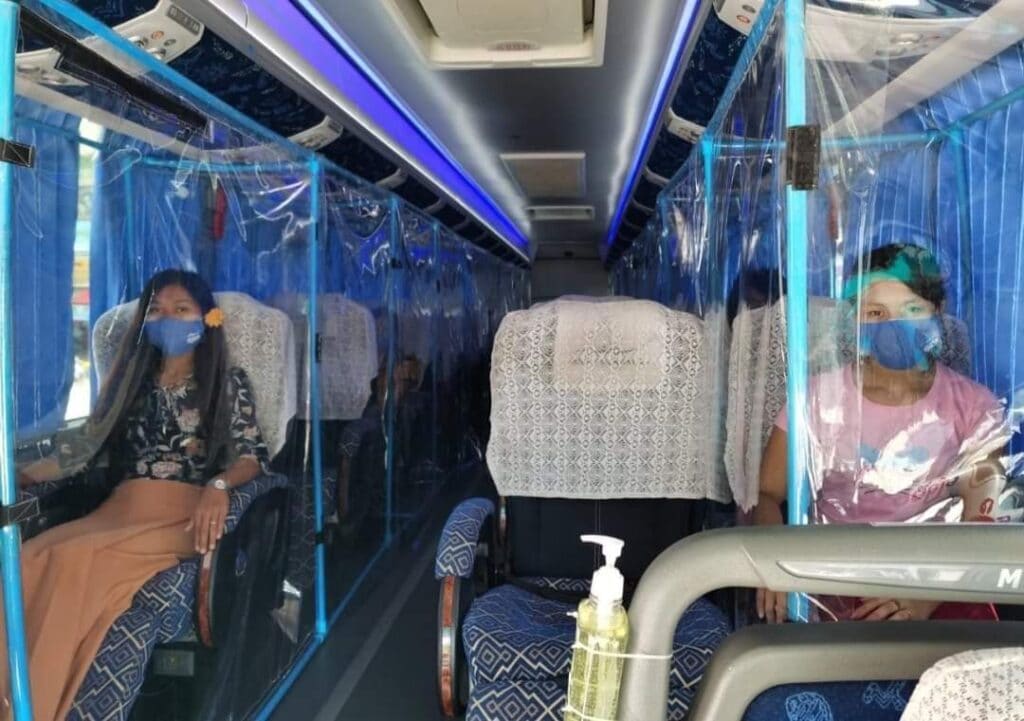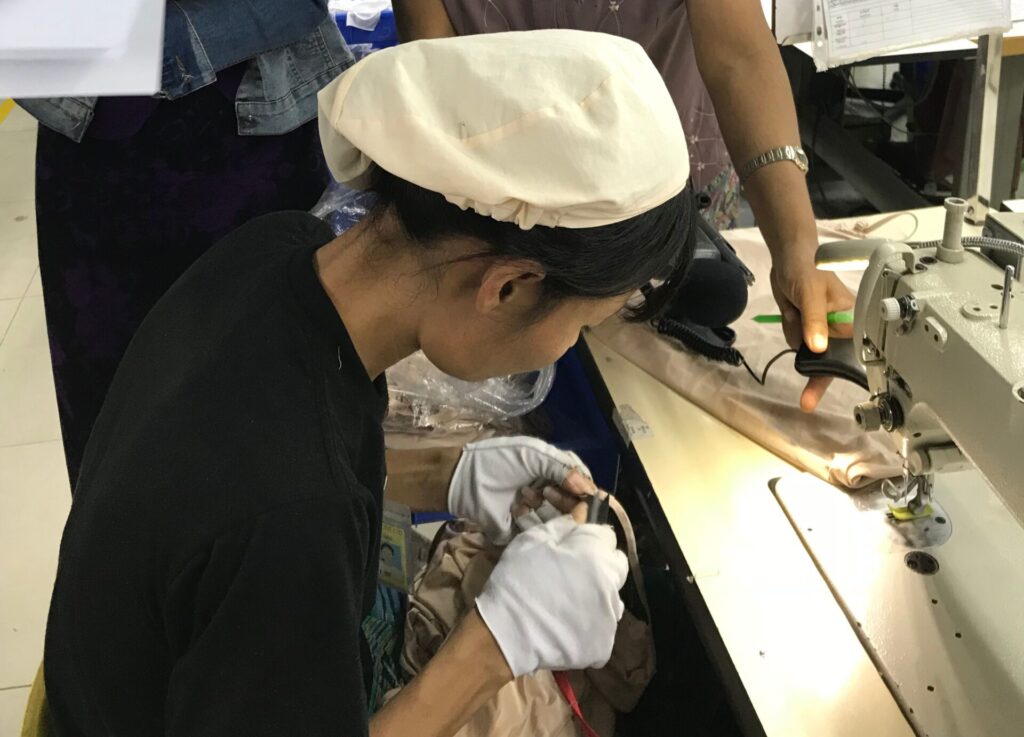Online reality overcomes invisible barriers in Myanmar
18-09-20

From information overload to nano-modules and co-creation. Professor Jan Vang, Head of Section, University of Southern Denmark, talks about how the Corona reality prompted changes in the modes of training and research collaboration with Myanmar.
By Vibeke Quaade
When the Corona epidemic put a full stop to international travel, Professor Jan Vang from University of Southern Denmark had just received a Danida grant for the research collaboration project Overcoming Barriers to improving Occupational Health and Safety among SMEs in Myanmar.
In addition, he and his group had two capacity development courses lined up for Danida programme partners from Bangladesh and Myanmar in Denmark in 2020, one in Strategic Leadership and the other in Occupation Health and Safety. Both the research project and the courses were centred on occupational health and safety conditions in the labour market. This is the area where Denmark and Myanmar collaborate in their strategic sector cooperation.
You can imagine that I was upset. I have been working with Asia for practically all of my professional life and my projects and collaboration with colleagues and partners depend on my physical presence in Asia. It was a shock to be cut off all of a sudden, Jan Vang says.
We are sitting outdoors on a warm late summer day in Copenhagen about five months after the international travel ban was introduced in March. A lot has happened since then. Jan Vang has promised to talk about his projects in Myanmar and what he experienced when he moved them all online after Covid-19 set in.
He starts by outlining the background of the research project.
A garment worker lasts a maximum of 10-13 years in the job
About four million women work in the garment industry in Myanmar. Because the working conditions are physically very demanding, a textile worker’s professional life often only lasts 10 – 13 years. Being forced to sit in the same position with a bent neck day in and day out, often without proper lighting, is extremely wearing. Hence, the core of the research project Overcoming barriers to improving Occupational Health and Safety among SMEs in Myanmar is to find ergonomic ways to lessen the workers’ physical stress.
All it might take to improve conditions is to redesign the working spaces and positions so the workers do not repeat the same damaging movements 10,000 times a week, Jan Vang says.
The research team will look into how best to disseminate the results of the project and possible good practises as far as ergonomics integrated with higher productivity are concerned.
See the project description her
How to start up the project in the new Corona reality?
Normally, creating the basis for a common understanding of a project’s modes of operation and methodologies would take place at an initial training course in the country where the research is to take place. Now, with no-one being allowed to travel internationally, how to kick start the research project and gather all the partners was what worried Jan Vang.
I simply could not imagine how we were going to start the research and get everybody on board from the beginning so that we could carry out the project in a meaningful way, Jan Vang says about his immediate reaction.

When a negative starting point becomes positive
Then he met a colleague from SDU, Professor Peter Bro. Peter Bro had long worked with how curriculum could be broken down into nano-modules. He had organised many workshops and seminars about it and the feedback was convincing.
The positive response convinced me that changing the modes of collaboration between the Danish and Myanmar partners might be our solution, too, Jan Vang explains.
So instead of planning a two week trip to Myanmar with a programme full of meetings from morning to evening, Jan Vang and his colleagues took a serious look at how the programme could be cut into smaller more stringent and easy-to-digest units. They also started to think about what they could do to make the training more interactive and involving. Jan Vang explains that the initial training courses in the international research collaboration projects are very concentrated, for the obvious reason that the time that all the research partners have together is limited. For the partners, it often results in information overload that does not translate into capacity development. What is worse, the information is in danger of getting lost in translation and consistency as the communication flow is difficult to maintain.
So we made a new online programme of sessions with a maximum duration of two hours that included content cut into small focused units. We also used visual material and pre-recorded videos made by both the partners in Denmark and Myanmar, Jan Vang tells me.
More in the same boat
The results so far are really positive. The problem of information overload has lessened while the level of cooperation, involvement and commitment from both sides seems to have increased.

It is as if the online situation has broken down some invisible barriers; it is as though we are all in the same boat now that we are all online, Jan Vang says. He shows some examples of feedback from the research team in Myanmar.
The online training supported by our Danish partners is great and effective. I admire the way it is designed and delivered, writes Aung Myo Lwin, Professor at Yangon Technological University.
Unfortunately, it will take some time for us to meet due to the Covid-19 pandemic. But with this online course we have had precious discussions. Though we were far away, we felt close to each other, writes Yin Yin Tun, PhD student.
Facebook and quick photos
It also helps that the team uses Facebook for collaboration Facebook being the favoured social media platform in Myanmar. When videos and presentations are uploaded there, they are available to everyone and easy to share with the various stakeholders such as factories or safety inspectors.
The reporting modality is another thing that Corona has prompted the project to change. Instead of written feedback, that are both difficult to write and decode, the team has shifted to short, often photo based, messages.
It is not that everything now is like a walk in the park. Of course, there are still loads of misunderstandings and things to follow up on. But it is very interesting that our new online reality seems to have resolved former drawbacks like information overload and limited partner involvement. Who would have thought it? Jan Vang says.
Myanmar pushes reforms
The government of Myanmar is collaborating with Denmark on labour market issues to support safe and healthy working conditions. One aspect of this collaboration is educating and promoting dialogue amongst workers, employers and the government in order to improve their mutual understanding. Danida Fellowship Centre’s capacity development courses in Occupational Safety and Strategic Leadership play an important role here.
In addition to leading the research project Overcoming barriers to improving Occupational Health and Safety among SMEs in Myanmar, Jan Vang is also in charge of organising the training course in Occupational Health and Safety Strategic Leadership.
Here, too, his approach has been to redesign the course and turn the situation that the Corona pandemic has created into something positive.
The course has always been based on a problem-oriented approach. In the new reality, where people are completely or partially isolated with their families, this has meant that at least some of the exercises have had to be designed to take place at home.

For example, the exercises where the textile workers are involved in redesigning their workspaces, will now be assigned to the kitchen at home. The workers will be asked to tag in red the things that they use the most and to rearrange the tagged items in the kitchen so that they can be used more efficiently and less harmfully for the body. The same goes for conflict resolution. Here, too, the family setting will be used.
It will be exciting to get feedback on exercises tested in this way instead of exercises in an artificial setting. It may well prove to be more effective, and something we must continue with, because the home exercises are easier to internalize, says Jan Vang.
Facts about the Occupational Health and Safety Strategic Leadership and Occupational Safety and Health courses
The courses in Occupational Health and Safety Strategic Leadership and Occupational Safety and Health will run from October 2020 until the end of April 2021.The courses start with blended workshops where participants from Myanmar and Bangladesh are gathered and lectured by SDU online and local moderators. The courses will mainly rely on online training apart from a finishing seminar in Denmark at the end of the courses in 2021.
soma online
order soma online
buy tramadol
tramadol on line
